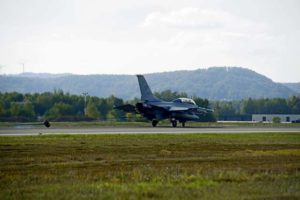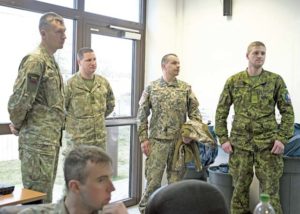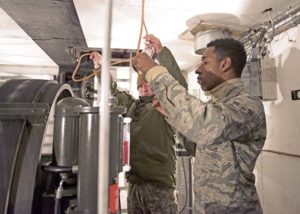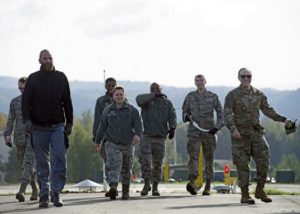
The 786th Civil Engineer Squadron boosted its readiness with Armed Forces personnel from NATO partners Estonia, Latvia and Lithuania in an annual conference on Ramstein Air Base from Nov. 4 through 8.
The partnership allowed all parties to learn from each other about the aircraft arresting system process.
The aircraft arresting system ensures fighter aircraft, or any aircraft equipped with a tailhook, come to a complete stop if a pilot is unable to land the aircraft safely on his own. The Ramstein aircraft arresting system received its annual certification on Oct. 30.

While Ramstein doesn’t normally use the system, because of its airlift mission it is a common stopping point for a variety of aircraft which transit through. Transient aircraft are allowed to use Ramstein in the event that they cannot land at their home base.
The certification further strengthens Ramstein’s partnerships with other bases.
“It shows that we are capable of working together,” said U.S. Air Force Tech. Sgt. Jhazzen Singleton, 786th CES noncommissioned officer in charge of aircraft arresting systems. “We partner with them to accomplish the goals of not just a single base, but a larger Air Force.”
The partnership with Baltic countries is the first time Singleton has worked with other nation’s power production technicians.
“It shows that we work on some of the same systems,” Singleton said.
In contrast, some of the original prototype systems the U.S. uses are now employed operationally by NATO partners in real-world scenarios.
“Our jobs are driven by procedures and AFIs,” Singleton said. “We all get to an end goal, but they may do something a little bit differently than we do to get to that common end goal.”
The interaction allowed participating countries’ personnel to share and learn from each other.

“You always get something new,” said Lithuanian air force Pvt. 3rd Class Aurimas Kantauskas, aircraft arresting system technician.
“The partnership was also beneficial because both of them now have knowledge of how the other countries’ aircraft arresting systems work, making relations between them easier in the future,” Latvia air force Sgt. 1st Class Kaspars Jansons, power production technician, explained.
But the crossfeed of experiences and methods to overcome challenges doesn’t end. The participants now have an extended network of people to collaborate from.

“If they were having problems, they can email us,” Singleton said. “Likewise, I’m going to email them. Then maybe they know how to fix it, and same for them.”
Likewise, I’m going to email them. Then maybe they know how to fix it, and same for them.”


